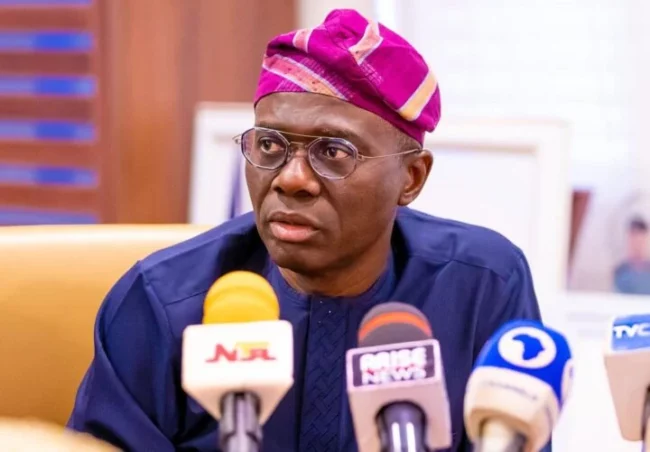AfrikanTrust
After years of dead-end negotiations and abandoned partnerships, Uganda has inked a landmark $4 billion agreement with UAE-based Alpha MBM Investments LLC to develop a long-anticipated oil refinery. Touted as the linchpin of Uganda’s domestic energy independence and industrial transformation, the project could contribute up to 9% of the country’s GDP and potentially 20% when paired with the full development of the adjacent Kabalega Industrial Park. But behind the optimism lies a complex web of geopolitical calculations, financial risks, and a trail of failed attempts that cast a long shadow over the project’s feasibility.
The 60,000-barrels-per-day refinery, to be situated in western Uganda’s Hoima district, is being pursued under a public-private partnership, with the UAE’s Alpha MBM holding 60% and the Ugandan government—through its Uganda National Oil Company (Unoc)—retaining 40% via its subsidiary, Uganda Refinery Holding Company. The Implementation Agreement (IA), signed on March 29, 2025, consolidates commercial terms including crude supply, shareholder structures, and the hosting framework.
This development follows nearly 13 years of frustrated attempts, where Uganda courted Russian, American, Korean, and Italian companies, all of whom exited the table before reaching a Final Investment Decision (FID). The shift to Alpha MBM marks Kampala’s latest pivot, underlining the country’s persistent search for a credible partner to monetize its estimated 6.5 billion barrels of oil reserves.
While the announcement sparked national euphoria, particularly with the backing of President Yoweri Museveni, questions have emerged about Alpha MBM’s capacity. The UAE investor, led by Sheikh Mohammed bin Maktoum bin Juma al Maktoum, is relatively unknown in the energy sector. The subsidiary executing the deal—Alpha MBM LLC International—was incorporated just six months ago and has no public record of managing projects on this scale.
Moreover, Alpha MBM has resisted Uganda’s demand to fully finance the refinery through equity, instead pushing for terms that guarantee compensation when the refinery retires in 25 years. Experts like Marc Howard, a UK-based consultant specializing in African energy investments, have expressed skepticism. “No midstream project of this magnitude is executed without significant debt financing—except for Chinese-backed megaprojects,” Howard notes.
The Alpha MBM deal isn’t limited to oil. In parallel, Uganda signed five additional agreements covering aviation, digital land systems, e-governance, forestry, and logistics—again with single-management companies affiliated with Alpha MBM. This move suggests that the UAE investor may be aiming for a comprehensive footprint across Uganda’s infrastructure, positioning itself as a strategic development partner.
But critics argue that such broad-based ambitions, particularly when undertaken by relatively untested entities, could overextend both investor capacity and government oversight. “We’re seeing a lot of big numbers, but no one is yet showing us the money,” a government official noted anonymously.
From a strategic standpoint, Uganda has compelling reasons to pursue this refinery. The country imports $2 billion worth of petroleum products annually, primarily from the Gulf via Mombasa and Dar es Salaam. A domestic refinery would not only plug that import bill but also serve neighboring markets in Rwanda, South Sudan, eastern DRC, and parts of Kenya and Tanzania—all of which lack refining capacity.
Uganda’s positioning is further strengthened by its joint ventures with TotalEnergies and CNOOC in the Tilenga and Kingfisher oilfields, respectively, which are expected to feed the refinery with 230,000 barrels per day of crude. UNOC, which owns a 15% stake in these upstream projects, is expected to supply crude to the refinery and pay a processing fee—thereby integrating the value chain domestically.
If successfully implemented, the project could improve Uganda’s balance of payments by $591 million annually, create 32,000 jobs, and inject $8.2 billion in capital formation, according to government projections.
Yet, failure could come at a steep price. Uganda’s history with refinery deals is checkered—AGEC (a consortium including Baker Hughes and Saipem) walked away despite completing a Front End Engineering Design, citing financing issues. Before that, Russia’s RT Global and South Korea’s SK Engineering exited amid protracted negotiations. Even Algeria’s Sonatrach, which seemed a promising state-backed partner in 2023, was abruptly sidelined.
If Alpha MBM fails to secure financing or meet the development timeline, Uganda risks not just economic delay but also reputational damage. The government’s credibility in managing large-scale investments could be eroded, especially given the lack of transparency around due diligence on Alpha MBM. Additionally, the opportunity cost of sidelining proven industrial partners may haunt Kampala’s long-term energy planning.
Uganda’s aggressive push for a domestic refinery comes as global markets tilt increasingly toward green transitions. Refinery investments are inherently carbon-intensive, and without clear strategies for integrating low-carbon practices or attracting carbon-offset capital, Uganda’s refinery could become a stranded asset in the medium term. Moreover, while the UAE has pledged to lead the global transition to renewables under its “Energy Transition Acceleration” initiative post-COP28, Alpha MBM’s fossil-heavy investment in Uganda may reflect strategic hedging rather than alignment with climate goals.
For Uganda, the $4 billion refinery deal represents both promise and peril. On one hand, it could redefine the country’s industrial trajectory, plug energy trade deficits, and catalyze regional energy independence. On the other, it carries all the hallmarks of a high-risk venture dependent on a relatively unknown player in a capital-intensive, politically sensitive sector.
Whether the project delivers or fizzles out will depend on Alpha MBM’s ability to move beyond signatures and deliver the financing muscle and technical execution that has eluded Uganda’s previous partners. The Final Investment Decision, still pending, will be the moment of truth.
Until then, Uganda’s oil dreams hang in the balance—glittering with possibility, but shadowed by precedent.




